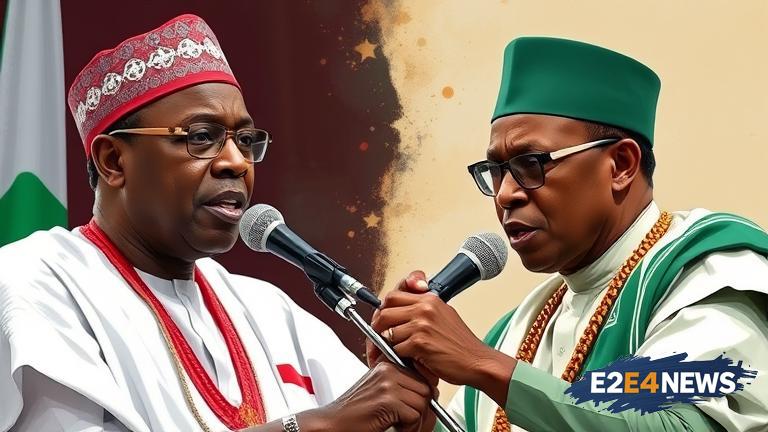The political landscape in Nigeria is becoming increasingly complex as the 2027 elections approach. The All Progressives Congress (APC) and the African Democratic Congress (ADC) are two of the major parties vying for power, and they have found themselves at odds over support from northern Nigeria and regional interests. The APC, which has been in power since 2015, is seeking to maintain its grip on the region, while the ADC is looking to make inroads and gain support from northern voters. The clash between the two parties is centered on the issue of regional interests, with the APC accusing the ADC of trying to undermine the north’s influence in national politics. The ADC, on the other hand, claims that the APC is trying to use its dominance in the region to suppress opposition and maintain its hold on power. The situation is further complicated by the fact that the north is a key battleground in Nigerian politics, with the region’s voters playing a crucial role in determining the outcome of elections. The APC has traditionally enjoyed strong support in the north, but the ADC is hoping to capitalize on growing discontent with the ruling party’s performance. The ADC is pitching itself as a viable alternative to the APC, promising to address the region’s developmental challenges and promote the interests of northern Nigerians. However, the APC is not giving up without a fight, and the party is mobilizing its supporters in the north to counter the ADC’s efforts. The clash between the two parties is likely to have significant implications for the 2027 elections, with the outcome potentially determining the direction of Nigerian politics for years to come. As the campaign season heats up, the APC and ADC are engaging in a war of words, with each side accusing the other of trying to manipulate the electoral process. The Independent National Electoral Commission (INEC) has warned both parties to desist from inflammatory rhetoric and focus on issue-based campaigning. Despite this, the tension between the APC and ADC continues to escalate, with some observers warning of potential violence if the situation is not brought under control. The international community is watching the situation closely, with many calling for calm and restraint. The European Union, the United States, and other major powers have all issued statements urging Nigerian politicians to prioritize peaceful and democratic processes. As the elections draw near, the APC and ADC are intensifying their efforts to win over voters, with both parties promising to deliver on key issues such as economic development, security, and corruption. The ADC is focusing on its promise to create jobs and stimulate economic growth, while the APC is highlighting its record on infrastructure development and social welfare programs. The north is a critical region in this context, with the area’s voters likely to play a decisive role in determining the outcome of the elections. The APC is seeking to maintain its dominance in the region, but the ADC is hoping to make a breakthrough and challenge the ruling party’s grip on power. The situation is complex and fluid, with many factors at play, but one thing is clear: the 2027 elections will be a pivotal moment in Nigerian politics, with far-reaching implications for the country’s future. The APC and ADC are just two of the many parties involved, but their clash over northern support and regional interests is likely to be a key factor in determining the outcome. As the campaign season reaches its climax, Nigerians are bracing themselves for a intense and potentially divisive election, with the future of the country hanging in the balance.
